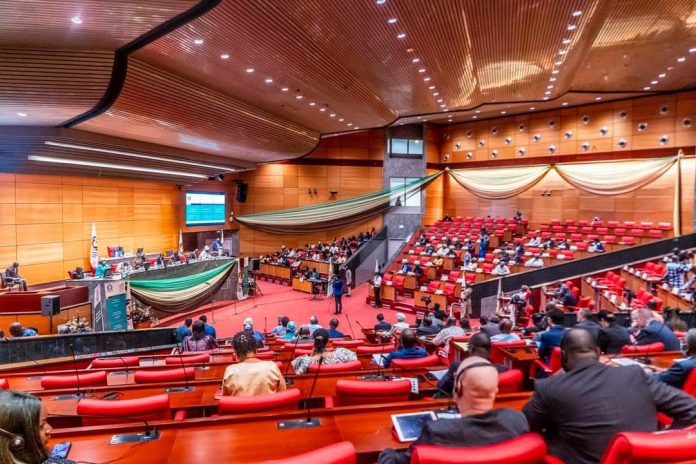The Economic Community of West African States (ECOWAS) Parliament convened in Winneba, on Wednesday, 29th July, for a five-day conference to tackle the pressing issue of plastic waste management in West Africa.
The conference, which is scheduled to end on Saturday, August 3, 2024 is made up of the committees on Agriculture, Environment, Natural Resources, Energy and Mines and Infrastructure, is spearheaded by the Head of Ghana’s Delegation to the ECOWAS Parliament, Mr. Alexander Kwamena Afenyo-Markin, aims to develop practical and realistic solutions to the region’s plastic waste crisis.
The session represents a significant step towards addressing environmental challenges and improving the well-being of communities across ECOWAS member states.
In his opening remarks, Mr. Afenyo-Markin expressed his gratitude to the 6th Legislature of the ECOWAS Parliament for their dedication to community programs and commended the Joint Committee for choosing this crucial topic.
Mr. Afenyo-Markin emphasised the warm reception the ECOWAS Parliament has consistently received from the people of Ghana.
“My fellow Ghanaians, this is your opportunity to welcome the ECOWAS Parliament, to open your arms to the Members as you have always done,” he said.
Mr. Afenyo-Markin highlighted the significance of the ECOWAS Parliament’s presence. “ECOWAS, through this Parliament, is here with you to reflect and discuss the issue of plastic waste and seek your deepest aspirations,” he stated.
He encouraged the citizens to embrace the parliamentarians and experts, underscoring the shared identity and unity within the ECOWAS community.
“Yes, all of us here today are brothers and sisters from the same father and mother, which is called ECOWAS,” Afenyo-Markin affirmed.
The Head of Delegation reserved special thanks for Her Excellency Hadja Memounatou Ibrahima, Honourable Speaker of the ECOWAS Parliament, for her instrumental role in making the meeting possible.
“Thank you for making it possible to hold the first delocalised meeting of the 6th Legislature here in Winneba, Ghana,” he said.
Mr. Afenyo-Markin acknowledged her ability to manage diverse perspectives within the parliament, fostering an environment where all members could contribute effectively.
Turning to the pressing issue, Afenyo-Markin emphasised the pervasive nature of plastic waste across West Africa.
“The issue that brings us together today is a common concern inherent in all modern societies, particularly urban societies in our community, from Dakar to Lagos, every major city in the region grapples with the impact of plastic waste”.
He stressed that while national solutions are necessary, the cross-border nature of the problem demands a collective, community-driven approach. “Given its cross-border nature, a community solution must be envisaged,” he asserted.
Mr. Afenyo-Markin highlighted the broad implications of plastic waste, affecting not just the environment but also agriculture, infrastructure and public health.
“It’s not a divisive issue, but one that affects our daily lives and has consequences for our populations, environments, agriculture and infrastructure,” he explained.
He praised the Joint Committee for selecting such a relevant topic, emphasising its importance in shaping the well-being of West African communities.
In conclusion, Afenyo-Markin expressed his hope that the deliberations would yield holistic solutions to mitigate the challenges posed by plastic waste.
“For us Members of this Sixth Legislature, this is the very meaning of our mandate in Parliament,” he declared.
ECOWAS Parliament
The ECOWAS Parliament, also known as the Community Parliament, is one of the Institutions of ECOWAS. It is the Assembly of Peoples of the Community serving as a forum for dialogue, consultation and consensus for Representatives of the people of West Africa with the aim of promoting integration. It was established under Articles 6 and 13 of the ECOWAS Revised Treaty of 1993. The initial Protocol establishing the Parliament was signed in Abuja on August 6, 1994.
The Parliament is composed of one hundred and fifteen (115) seats. Each Member State shall have a guaranteed minimum of five (5) seats. The remaining forty (40) seats shall be shared on the basis of population.









